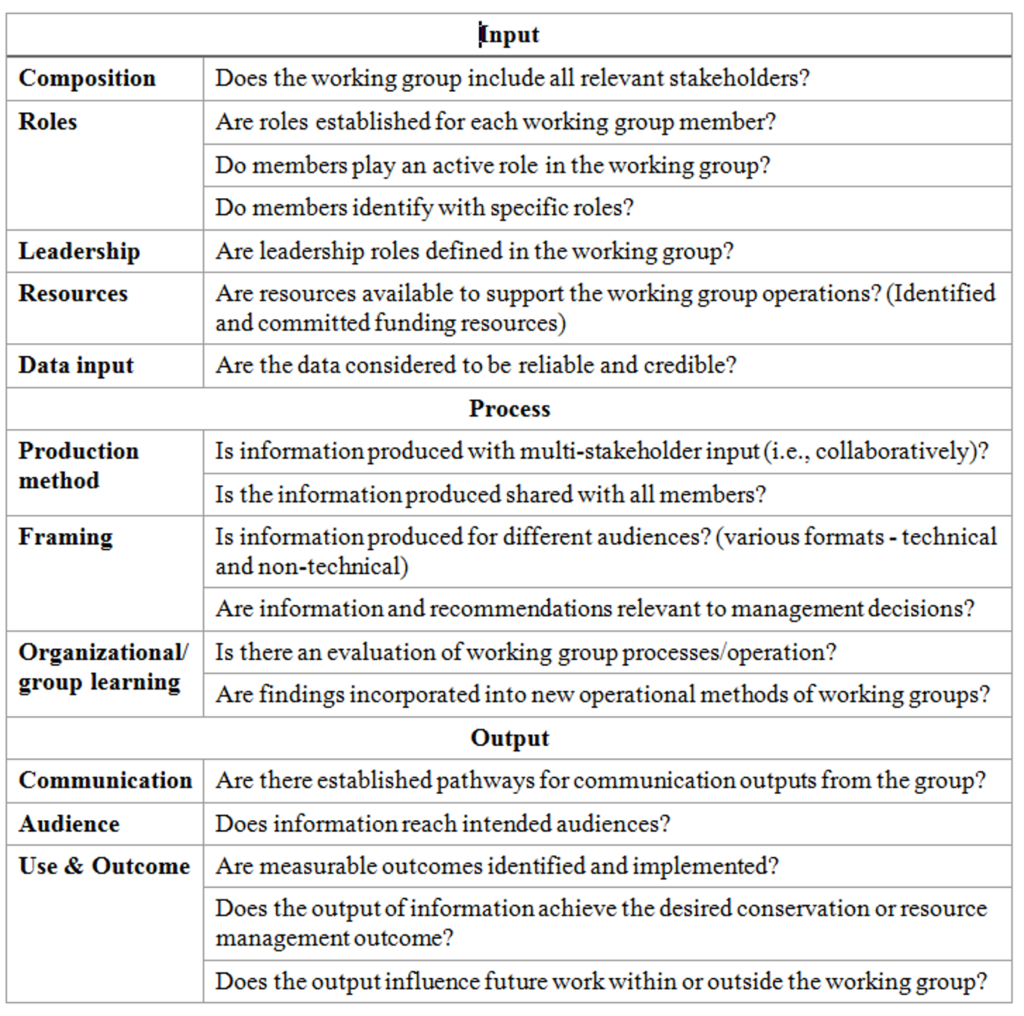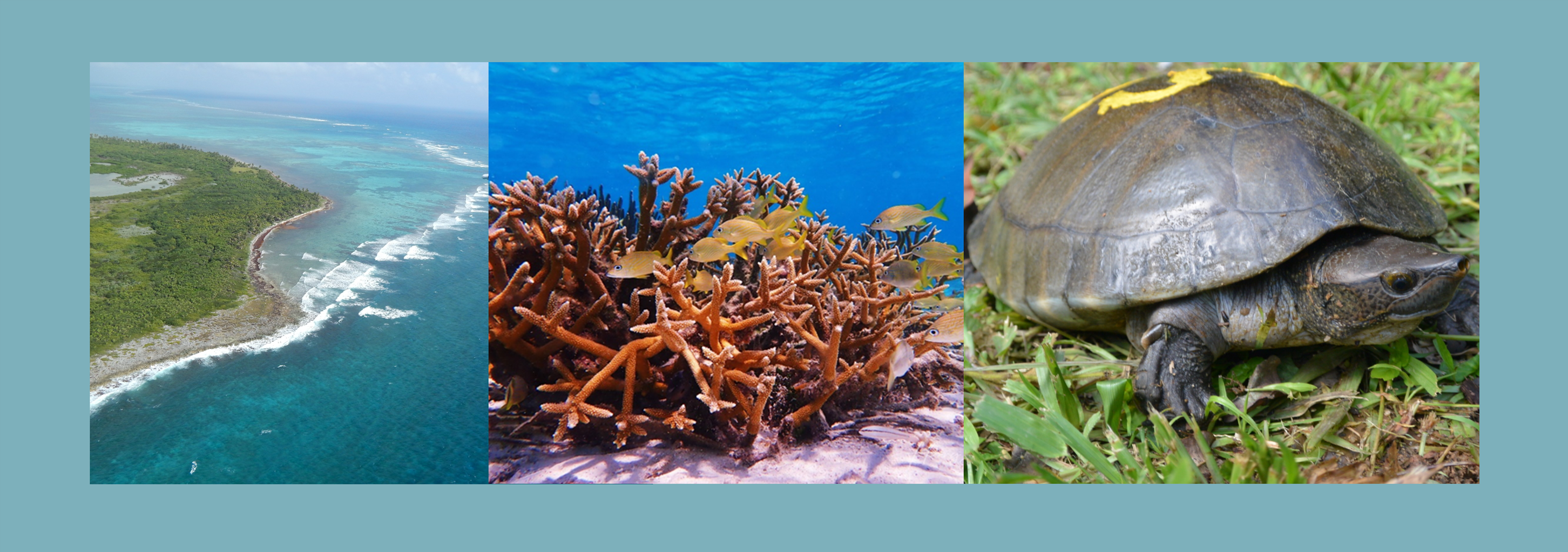Use of scientific information in evidence-based decision-making is critically important in contending with coastal and ocean management concerns. Evidence can reach policy- and decision-makers through a wide variety of channels, or it may not reach them at all due to a host of hurdles that can encumber information pathways. Furthermore, a myriad of information sources and very large volumes of information available today, both reliable and unreliable, generate challenges for policy- and decision-makers seeking the “right” information needed in management and policy decisions. What can be done to address these problems? One solution adopted by many governmental and intergovernmental organizations is the creation and implementation of technical advisory committees and working groups. Consisting of various sizes, usually ten or fewer members, these committees and groups fulfill an important function in facilitating collaboration among representatives of multiple stakeholders, receiving and assessing information from various sources, and producing reports and other types of documents to inform the work of policy- and decision-makers. Working groups can mitigate or overcome barriers in information pathways and thereby enable the uptake of research in decision-making. Given the ubiquity of working groups, it could be assumed they are effective in filling their designed roles. But are they? Few studies have considered this question in part because determining effectiveness is not a trivial matter.
In this new paper, we report on our investigation of the operation of working groups in marine conservation and fisheries management that provide advice to the Fisheries Department in Belize, a coastal country in Central America. We gave particular attention to the production of information and pathways for information transfer into decision processes for Nassau grouper (Epinephelus striatus), Central American river turtle (Dermatemys mawii), and territorial use rights in fisheries (TURF). The results identified both communication enablers and barriers in this context. Prominent factors that emerged from the data-informed how we outlined operational requirements for effective working groups that operate in decision-making processes. Drawing on theoretical input-process-output models we developed a suite of questions to assess the effectiveness of information communication by working groups (see Table 1).

Table 1. Operational requirements to evaluate the effectiveness of working groups (From Eck et al., 2024)
As we point out in this paper, “determination of the effectiveness of working groups is a multi-stage step research process that will lead to the establishment of relevant criteria and pertinent indicators.” The development of operational requirements for working groups offers a systematic framework for setting up groups that will be effective in producing information for conservation and resource management decisions and policies. Our study provides a foundation for constructing criteria and indicators of effectiveness.
Working groups frequently fill notable knowledge-brokering roles in assembling and expediting the uptake of evidence in management and policy decisions. Determining their effectiveness in these responsibilities, while not a straightforward task, is important as limited resources and extensive efforts are focused on dealing with significant environmental issues at all levels of governance from local to international. At each of these levels, it is critical that the right evidence reaches and informs decision-makers in a timely manner. Effective working groups can be instrumental in this process.
Reference
Eck, K., Soomai, S. S., & MacDonald, B. H. (2024). On the development of criteria for determining the effectiveness of technical working groups: A case study about information processes in marine conservation and fisheries management in Belize. Environmental Science & Policy, 160, 103863. https://doi.org/10.1016/j.envsci.2024.103863
Abstract: Use of scientific information in evidence-based decision-making is critically important in addressing coastal and ocean management concerns. In an ecosystem-based management context, ensuring that the “right” information (reliable) is available can be particularly challenging as the information often resides in different organizations with different management mandates. Many governmental and intergovernmental organizations have used a range of approaches, including technical advisory committees and working groups, to facilitate multidisciplinary input into the development of appropriate policies and management practices. This study examined the roles of multiple stakeholders participating in technical working groups that assist in decision-making for marine fisheries management in Belize, a coastal country in Central America. Through interviews with members of three working groups – the Spawning Aggregation Working Group, the Managed Access Working Group, and the National Hicatee Conservation and Monitoring Network – and decision-makers in the Belize Fisheries Department, information production processes and pathways for information uptake into policy were investigated. Major characteristics of communication at the science-policy interface associated with each working group were revealed. Important communication enablers and barriers were identified related to the operation of the working groups, such as membership commitment and resource availability, which influenced knowledge exchange within and outside the groups. Based on the results, a set of requirements for the creation and operation of effective working groups was formulated with regard to requisite inputs, the operational processes, and the types and uses of the information outputs of the groups. These requirements serve as a foundation for development of indicators of the effectiveness of working groups in environmental management contexts that support communication and decision-making at science-policy interfaces.
Authors: Kalene Eck, Suzuette S. Soomai, and Bertrum H. MacDonald
Tags: Information Use & Influence; Marine & Ocean Issues; Public Policy & Decision-Making; Science-Policy Interface; Scientific Communication
Image credits: Belize coastline and marine scene (Henry Brown); Hicatee (Belize Foundation for Research and Environmental Education)
